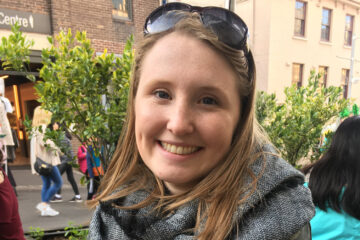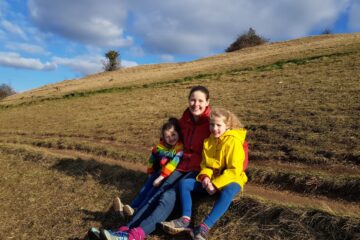Where’re your roots?
Having moved here a few years ago my roots are very happy to be bedding down into these lovely Cotswold parts.
What’s home?
I feel really privileged to have settled in Box with my husband and young kids, with all its space, views, access to the woods and lovely people. This really feels like home.
What’s work?
I’ve worked in environmental conservation since the late-noughties. I’m a chartered environmentalist leading national conservation projects. My latest project has been ‘revealing the value of nature’ using environmental economics to create a free tool that enables Local Authorities to show the value their natural resources provide for free; from improved air quality, to carbon sequestration to flood regulation. More about that here: https://www.channel4.com/news/is-there-a-more-climate-friendly-way-to-assess-the-state-of-our-economies
What do you do, when you’re not doing Minch CAN?
I’m working on it! Pre-kids you’d have found me on the hockey pitches, aerial-hoop classes, triathlons and campervan-ing around the countryside. Post-babies – and it is still early days – free time involves a lot of catching up on projects, restorative runs and large glasses of wine (not at the same time), in-between major DIY house renovation projects.
Why did you join Minch CAN?
It is a great opportunity to be able to apply the knowledge and networks that I have from a national conservation role to something more local, and hopefully have a positive impact on people and place.
What are your priorities?
Focusing on the high impact actions and not sweating the small stuff too much. It is too easy to spiral into a climate/environmental depression.
What’s the CANniest thing you can do?
It is not easy being green. Sometimes it is counterintuitive – like eating fruit shipped from the other side of the world is actually greener (more low carbon) than eating the equivalent amount of locally sourced beef. A lot of actions are trade-off (say, between using plastic, or using a high carbon product) and a lot of water-use and carbon-foot print is hidden in products.
The ‘big things’ that have strong evidence for lowering a personal carbon footprint are: not taking flights (or taking far less than you would, given free range); stopping at two kids; eating a plant based-diet (or really cutting back red meat consumption); choosing green energy and insulating.
It is not comfortable reading – those are all deeply personal choices.
What’s your climate confession?
Getting around a rural area, with small kids who need to get to different places, in a climate-friendly manner, whilst still making it to work on time is one of my greatest sustainability challenges.


